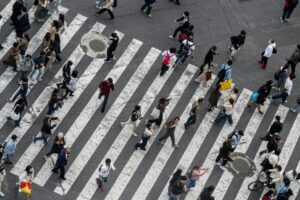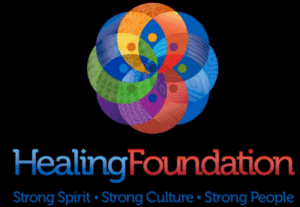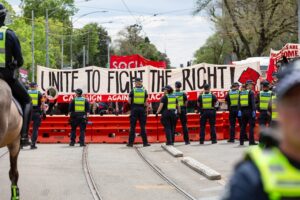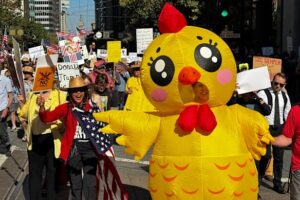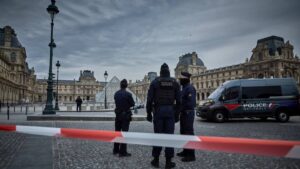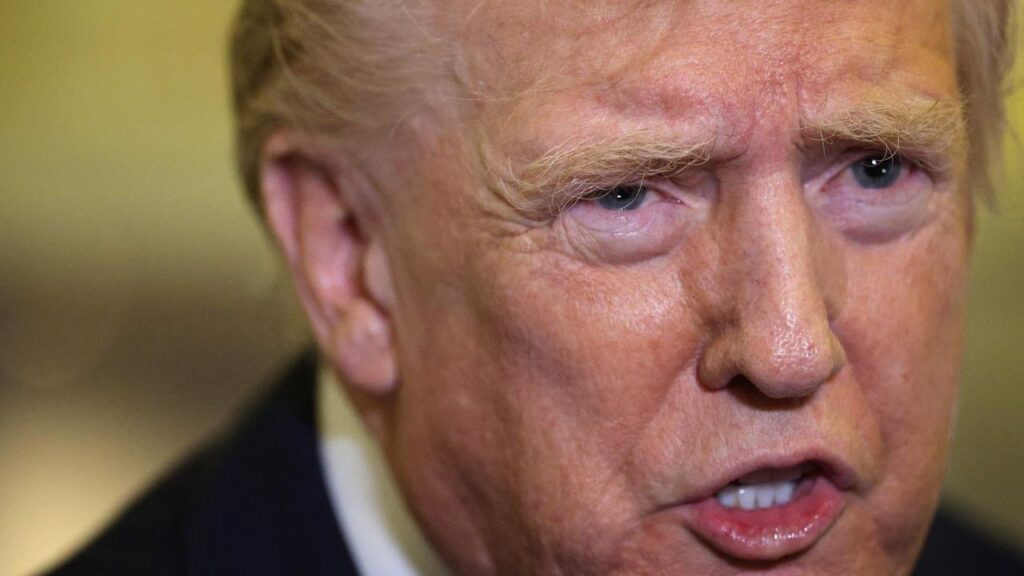
President Donald Trump has announced his intention to send National Guard troops to San Francisco to address the city’s ongoing fentanyl crisis and homelessness challenges. During an interview with Fox News aired on October 8, 2025, Trump stated, “We’re going to go to San Francisco,” emphasizing that the city, once a thriving hub, has deteriorated due to what he referred to as a “woke” agenda.
In recent months, Trump has deployed National Guard troops to cities including Los Angeles, Washington, and Memphis to combat crime. His suggestion to send troops to San Francisco aligns with previous announcements regarding similar interventions in Chicago and Portland, which faced legal opposition. Trump highlighted the contrast between San Francisco’s past and its current struggles, asserting, “It went wrong, it went woke.”
His remarks have ignited a fierce backlash from local officials. Scott Wiener, a Democratic State Senator from California, responded sharply on social media, stating, “We don’t want you here. We don’t want your invading army or ski mask secret police.” Wiener argued that the National Guard’s presence is unnecessary, suggesting that local authorities can manage the situation without federal intervention.
The debate over the proposed deployment has drawn mixed reactions from notable figures in the tech industry. Marc Benioff, CEO of San Francisco-based Salesforce, initially expressed support for the National Guard’s involvement but later retracted his statement. He acknowledged listening to constituents and concluded that the National Guard was not needed for safety improvements in the city.
San Francisco’s ongoing drug crisis is alarming. The Medical Examiner’s report indicated that there were 497 drug overdose deaths in San Francisco so far in 2025, with a significant portion attributed to fentanyl, a potent synthetic opioid. Although overdose deaths declined in 2024 compared to 2023, they are still markedly higher than pre-pandemic levels. In response to the crisis, former Mayor London Breed had declared a state of emergency in the Tenderloin neighborhood in 2021, but the problem persists across the city.
Alarming footage from citizen journalist JJ Smith has surfaced, depicting scenes of drug use in downtown San Francisco. His videos illustrate the extent of the crisis, showing individuals incapacitated on the streets due to drug use. In one recent video, filmed shortly before 07:00 local time on October 8, a dozen people were seen on the sidewalk, appearing unresponsive and under the influence of drugs.
In addition to the drug crisis, San Francisco faces a significant homelessness issue. A report from Point-in-Time indicated that as of January 2024, there were 8,323 homeless individuals in the city, marking a 7% increase from 2022. This rise in homelessness has compounded the challenges local officials face in addressing public safety and health.
The conversation around crime and public safety has intensified since Trump resumed his presidency in January. His administration has focused on deploying National Guard troops to various cities as a response to rising crime rates. Large-scale protests, dubbed the “No Kings” protests, took place across the United States, with participants voicing their opposition to Trump’s policies, including the use of the National Guard. Organizers estimated that around seven million people protested in cities from New York to Los Angeles.
As the debate continues, local officials like San Francisco District Attorney Brooke Jenkins have expressed confidence in their ability to manage the situation without federal assistance. Jenkins asserted, “We have this issue under control,” while acknowledging that state or federal resources could be sought when necessary.
The conversation around public safety in San Francisco reflects broader national tensions regarding crime, homelessness, and drug addiction, highlighting the complexities facing urban centers in the United States today.


